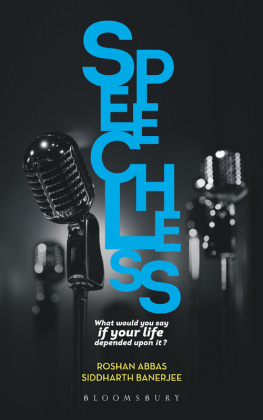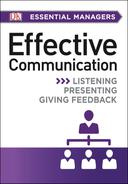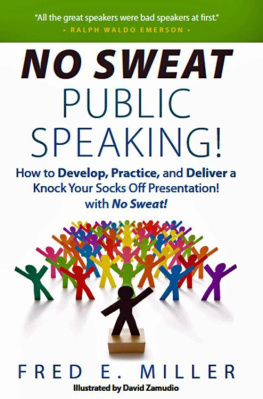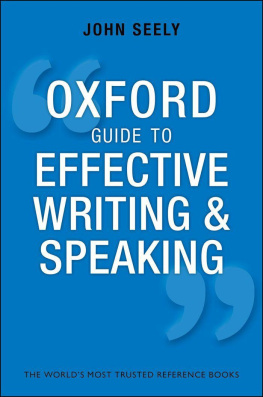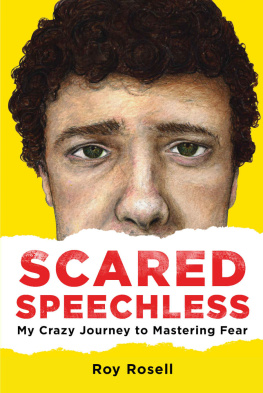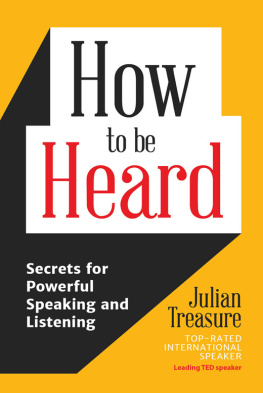Table of Contents

Speechless
Speechless
What would you say
if your life depended upon it?
Roshan Abbas and Siddharth Banerjee

BLOOMSBURY INDIA
Bloomsbury Publishing India Pvt. Ltd
Second Floor, LSC Building No. 4, DDA Complex, Pocket C 6 & 7,
Vasant Kunj New Delhi 110070
BLOOMSBURY, BLOOMSBURY INDIA and the Diana logo are trademarks of
Bloomsbury Publishing Plc
First published in India 2018
This edition published 2018
Copyright Roshan Abbas, Siddharth Banerjee, 2018
Illustrations Roshan Abbas, Siddharth Banerjee, 2018
Roshan Abbas and Siddharth Banerjee have asserted their right under the Indian
Copyright Act to be identified as Authors of this work
All rights reserved. No part of this publication may be reproduced or transmitted in any form or by any means, electronic or mechanical, including photocopying, recording, or any information storage or retrieval system, without prior permission in writing from the publishers
Bloomsbury Publishing Plc does not have any control over, or responsibility for, any third-party websites referred to or in this book. All internet addresses given in this book were correct at the time of going to press. The author and publisher regret any inconvenience caused if addresses have changed or sites have ceased to exist, but can accept no responsibility for any such changes
ISBN: TPB: 978-9-3871-4675-4; eBook: 978-9-3871-4677-8
2 4 6 8 10 9 7 5 3 1
Created by Manipal Digital Systems
Printed and bound in India
Bloomsbury Publishing Plc makes every effort to ensure that the papers used in the manufacture of our books are natural, recyclable products made from wood grown in well-managed forests. Our manufacturing processes conform to the environmental regulations of the country of origin.]
To find out more about our authors and books visit www.bloomsbury.com and sign up for our newsletters
Contents
| Chapter 1 |
|
| Chapter 2 |
|
| Chapter 3 |
|
| Chapter 4 |
|
| Chapter 5 |
|
| Chapter 6 |
|
| Chapter 7 |
|
| Chapter 8 |
|
| Chapter 9 |
|
| Chapter 10 |
|
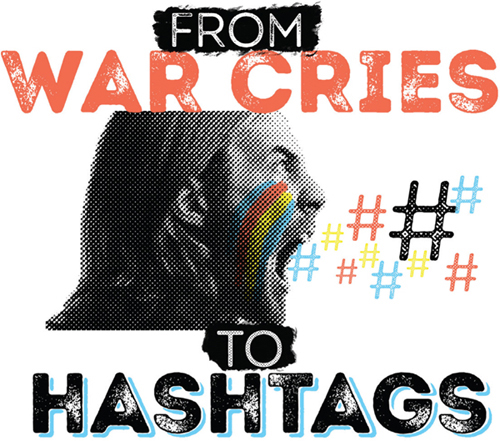
P eople often say that speech in todays world and age has been swamped by Whatspp chats and Facebook emojis. But what about our early days? From which primal sounds did modern speech evolve? A shrill mating call. A piercing war cry. A soothing lullaby. The precursors to speech were all about communicating primary and often basic urges. But modern language is one of humanitys most complex, and yet universal, achievements. If you cant describe something in words, does it really exist?
The right word conveyed with the right feeling can propel us into action and effect change. Whether its getting a dull party started or sleepy classroom motivated, a speaker has the power to effect real and lasting change.
Its a safe bet to begin any historic study with the polymath Greeks. Aristotles Rhetoric Trifecta from the fourth century BC gives us this useful structure.
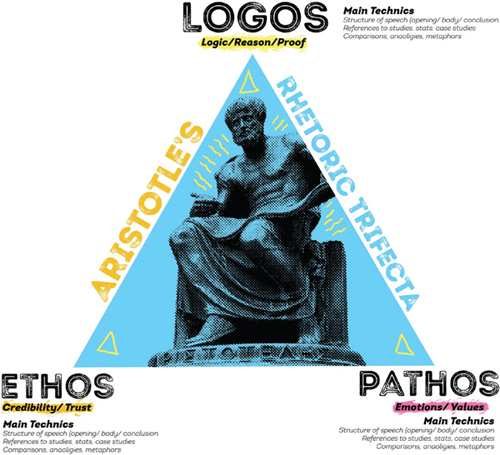
We are no students of neuroscience or linguistics, nor do we claim academic theories of laboratory fitness. But as public speakers, who have based our entire careers on communication with a wide range of audiences, we have picked up tips and tricks along the way that might help you put words to good use.
Its the age of remixes and reinvention. So heres our own version of Aristotles Trifecta, which we call The Golden Triangle, three Cs, based on the principles of the of Content Clarity (Delivery) and Cohesion (Structure).
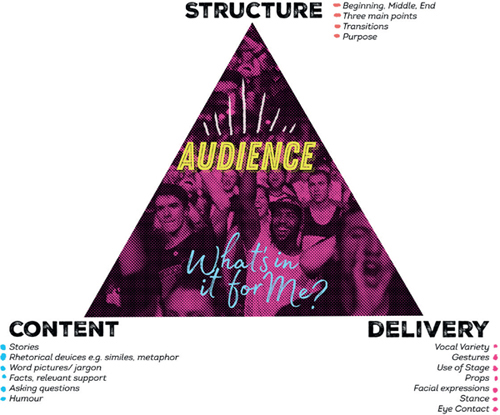
The need for effective communication
How many times did you have to persuade a colleague to go that extra mile? A family member to weigh in on home tasks? A child to put in more effort before a test? And how often have you had to address a gathering and found yourself struggling with thoughts that just wont translate to words? Dear audiencetake heart. Weve been there too. And come out on the applause side after many failed attempts, some hilarious and others just humbling.
Through a process of trial and error refined with extensive reading and advice shared generously by our friends and peers, we have come upon a PRIMING ROUTINE that helps lay the foundation for your thoughts as an effective speaker, builds awareness about your audience and ensures that you are set up for success and for effectively communicating your key messages.
The preparatory questionnaire below is where it all begins:
Q) How do you define the context of what you are going to communicate?
Is there a background to your speech? A topical reference or a life event?
Q) How do you define the purpose of the communication?
Does it aim to inform/educate/entertain, etc.?
Q) Where are you speaking?
At a bar or a conference hall? A face-to-face meeting? A press conference?
Q) When are you speaking?
Opening/closing? Are you the first pitch or the tenth interview?
Q) Who is the audience/recipient?
A team that reports to you will be completely different from a dealer whom you cater to. An alumni meet may be different from a principals address welcoming new students.
Q) What is the occasion?
A thanksgiving or an acceptance speech? An introduction or a team meeting?
Q) How can you begin and end on a high?
Can you plan for a James-Bond-Style explosive start and end equally strongly?
Q) What is your expected outcome?
Be clear about the two to three key messages you want to deliver and ensure that you keep reinforcing these messages.
Hence, while we now have numerous ways to communicate in this new Digital Age, the basics of effective communication continue to remain the same, rooted in a few simple principles and some trade secrets, which we have crystalized into a simple mantra called Speechless.
W e are all social animals blessed with the unique gift of imagination. While reaching out for the best life possible, we connect with others, try to influence them and are ourselves influenced in turn. Ideas are the intellectual capital of all agesthey make civilization and culture possible. And for these to spread, we need effective communication.
While researching, writing and road-testing this book, we spent hours and hours pondering upon the meaning of speech. But the core ideas of our book actually began with a single word, speechless, and the aha! moment for our mantra also came from the same word.
Allow us to explain this using two scenarios.
Everyone among us, irrespective of social background or personality skills, has found themselves grappling for words at some point or another; fumbling, while trying to build a case; being underprepared for a discussion; being left tongue-tied in a public situation; being rendered speechless.

